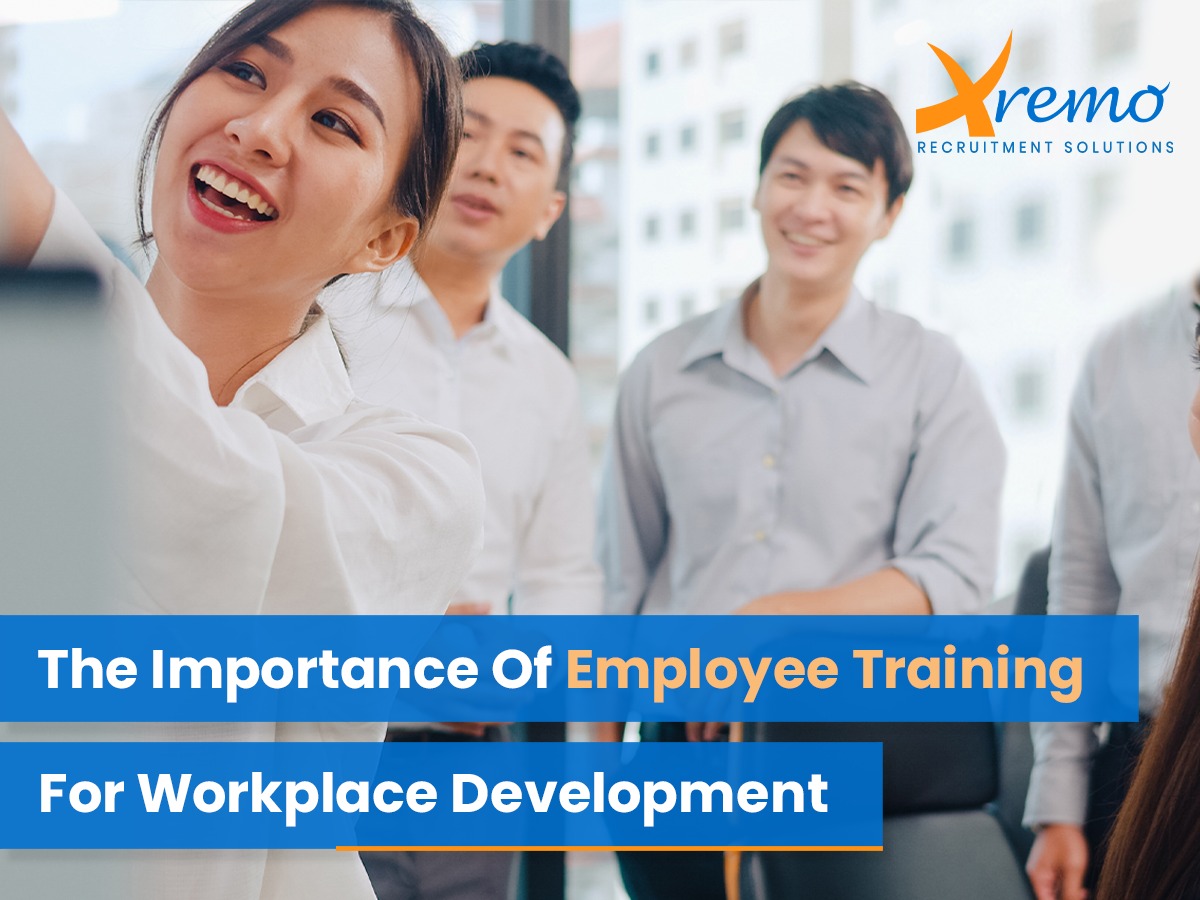As the title suggests, any workplace is developed as a result of employee training. Any kind of training is to the advantage and benefit of the employees, the employer and the business at large. The quality and frequency of training come into play as well so, regardless of the scale of a business, employee training can produce benefits across the board.
For the employer, here are some questions to ponder upon in case you’re feeling apprehensive about this.
1. Do you want to increase the knowledge base within your organisation?
2. Do you want to be an employer that is sought after because you recognise the value of upgrading your employees by training?
3. Do you want to produce great people to your own credit?
4. Are your employee’s job satisfaction important to you?
5. Do you want to have your employees being invested in your business?
6. Do you want your organisation to be better than your competitors?
7. Do you want to identify and correct weaknesses in your current workflow and set achievable goals?
If yes, then you’ll be taking the first steps of doing your part as a great CEO with a big vision. Let’s look at some of these points.
Increase the knowledge base within your organization
It’s well within your expectations as an employer to expect a certain standard from your staffs. But consider these. Is there ample time for your staffs to learn new technologies, particularly when you have a different mix of age groups that come from different generations? Can everything be learnt on the job? A generation ago, there were less changes and innovations in the workplace. People could still handle them and learn on the job, but is that still true today? Just look at the number of e-commerce and tech innovations that have come about in just the last two years.
Different types of training that are still relevant can give that extra boost and possibly set them on a path of satisfying learning experiences. The company as a whole benefits from well-trained staff who intentionally and continuously learn. In a nutshell, trained employees add extra value to the business.
Some of these trainings are internal as well as external such as:
Orientation
Orientation is the first step. An internal introductory process when one joins a company. There should always be a key person that does this part of the job, much like a tour guide who brings you into the important facets of the company such as HR, company structure and values.
Internal training should be an organised program with clear KPIs. These are additional and general KPIs apart from your letter of appointment. Many companies fail in this important first step to align a new employee properly.
Internal or External Skills Training
As every company is unique in its needs, so is the training. Needs such as specialised workflows involving proprietary software and equipment are usually handled by a point person. This is always done by an experienced leader. One who is well versed and trained by the supplier of such machines. “Train the trainer” so to speak and there are many who do this.
External training is done exclusively by an external supplier, often with certification either in person or online. These include technical skills, managerial skills, supplier sponsored conferences as well as compulsory training to achieve certain accreditations relevant to the company.
Is your employee’s job satisfaction important to you?
Have you ever been the sort of employer who spent hundreds on entertainment but had a hard time buying software that costs a measly 30 dollars? If so, then you really have something to think about. This is the digital age where continuous training and learning are inevitable. Even you as an employer can’t escape from this. It’s more than just money because employees spend a lot of time travelling to and working at your business. You have to do your part to alleviate some of that stress. Job satisfaction happens when they are able to achieve set goals without suffering too much and are able to have some energy leftover to appreciate their work and life. Some of this suffering comes in the form of old clunky computers, unkempt workplaces, outdated work practices and systems, stressful and unrealistic KPIs and consistently long working hours just to name a few. And you look at your competitor down the road and he seems to have fewer but happier staff and gets more done in less time. Satisfied employees give more.
Do you want to have your employees feel invested in your business?
Yes, you do. You can choose and plan out the most suitable training for your people. Prepare yourself and study your workforce to look for areas of lack. In other words, “A gap in skills”.
Look for:
A) Existing ways of work or practices. How can you improve them?
B) Employees’ skill level. Are you maximising your people? Just take another look at their resume.
C) Identify areas of struggle or difficulty in the day-to-day work process.
D) Computer and specialised skills that are necessary to boost business.

Talk to like-minded business people. Ask them about what they did to remedy their situation. In this case, you can narrow down what sort of training and how it can be done like:
A) Classroom style training during work.
B) Simulated coaching or online training.
C) External Consultants or suppliers who not only supply equipment but also train people to use them fully.
Either way, you can make sure that these training sessions certify your employees by giving them industry standard certification and recognition. A mental lift does wonders.
Let’s pause here. You have a business, employees and clients. You’re not driving the business all by yourself, are you? Your people need to be as motivated and as invested as you are on a daily basis. You’d love to see that kind of motivation and loyalty, right? Good employees with the right consistent attitude are able to motivate you as well. It’s a symbiotic and fulfilling relationship. Everyone works efficiently when they trust each other.
Trust
Trust is so rare in the workplace. Do you care if your employees can trust you? Can they also trust each other? More importantly, do you care if they do? If not, somebody will quit. You will have to rehire and retrain, thus spending more. If there is one person who is responsible for creating this trust, is it not you, the employer? The object of your trust determines its level but to be untrusting seems quite a natural thing.
We are a society that’s filled with much distrust, and all the other things that follow like pride, ego etc. These actually hold us back. But you as an employer can bring out the best in your people. You can invest in them and then you have all the more right to demand more of them.
Now, the world has continued changing in a digital evolution as we emerge out of the lockdown. Continuous training and re-training is more important now than ever.
If these career insights are helpful and make sense in opening your mind to the condition of today’s workplace, helping you to navigate yourself, then give us a call. Our career advisors will take you by the hand to guide you to possible success.


